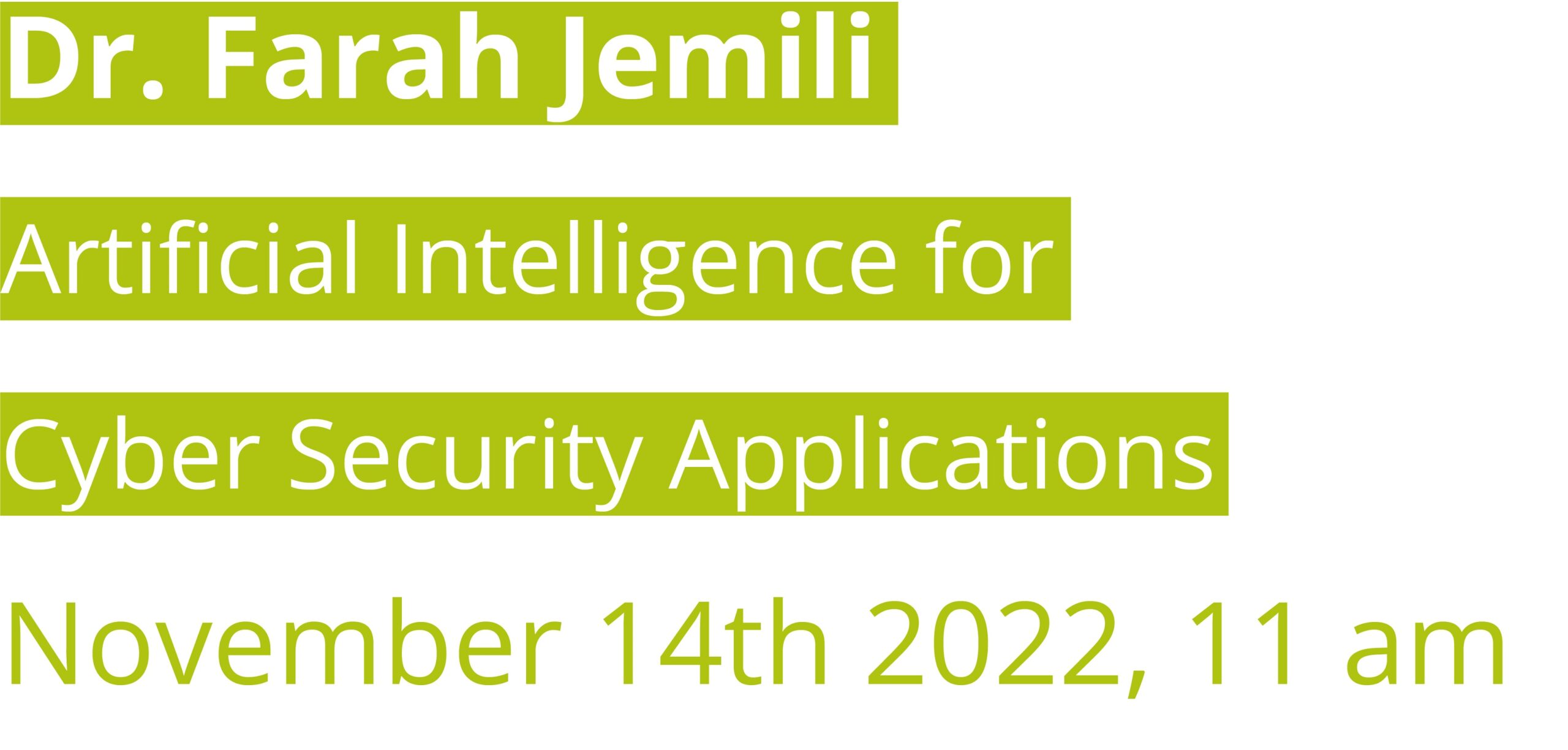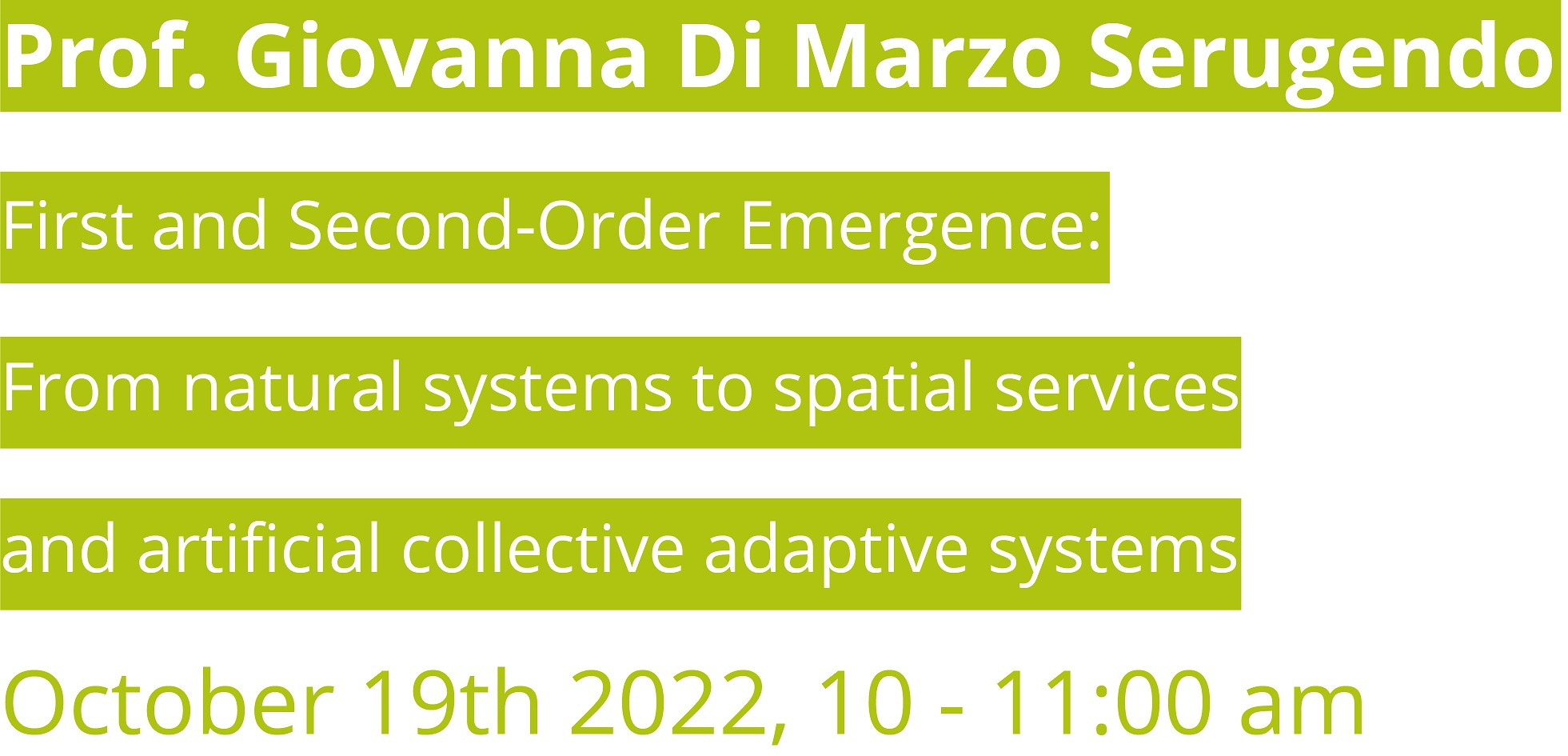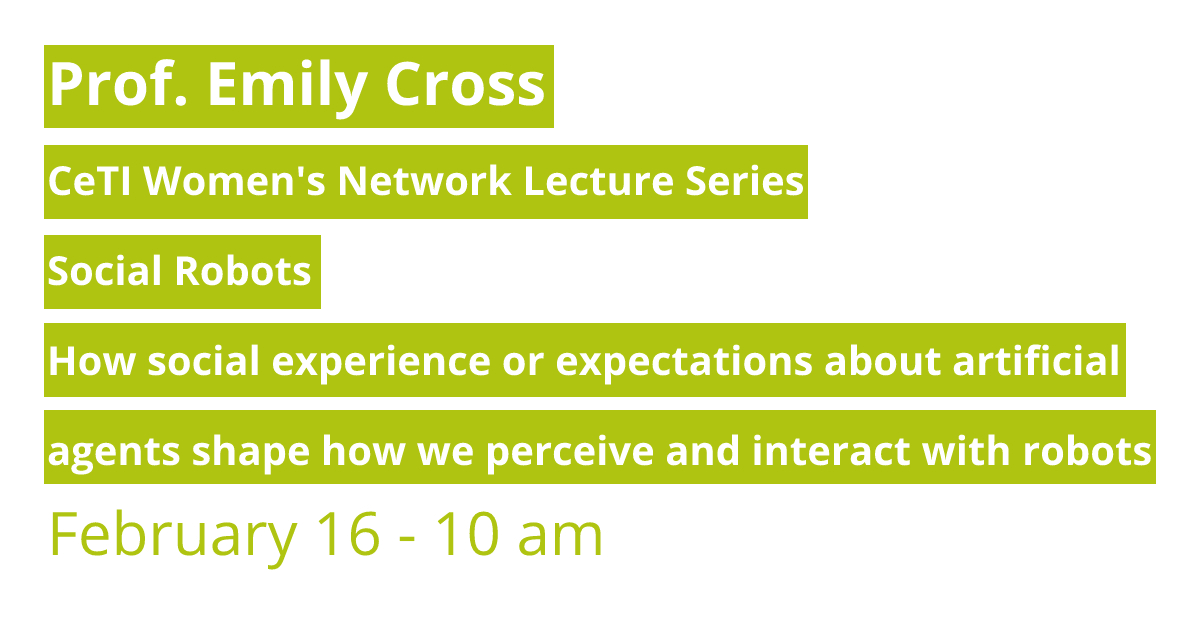The Women’s Network is an informal network for all women working at CeTI, regardless of their scientific career level. It serves the purpose of networking, professional exchange and the development of ideas and should be largely self-directed. Ideas for the advancement of women in particular and approaches to removing career obstacles that come from the network can be submitted to the CeTI Programme Office, Career Development & Equal Opportunity, and the Womens’ Network Director.
Past events

The lecture will take place in Barkhausen Bau (BAR I15) or virtually via Zoom:
Meeting ID: 688 2122 8788; Passcode: kH$s5G&9

The lecture will take place in Andreas-Pfitzmann-Bau, Großer Ratssaal (APB/1004).

About Prof. Emily Cross
Emily S. Cross works as a Professor of Cognitive Neuroscience at Bangor University in Wales, where she directs the Social Brain in Action Laboratory. Through her research, she explores the experiential factors that shape the human brain and behavior when learning new actions or watching others in action. Using intensive training interventions and research paradigms involving dance, acrobatics and robots, she is particularly interested in questions concerning observational learning throughout the lifespan, motor expertise, aesthetics, and how people’s expectations shape human-robot interactions. Originally trained in dance and theatre, Emily completed undergraduate studies at Pomona College in California, a Fulbright fellowship in New Zealand, and a PhD in cognitive neuroscience at Dartmouth College, where she also performed and toured as a dancer. Her research has been supported by a number of national and international funding bodies, including the National Institutes of Health (USA), the Humboldt Foundation (Germany), the Volkswagen Foundation (Germany), the Netherlands Organisation for Scientific Research (NL), Marie Curie Actions (EU), the Economic and Social Research Council (UK), and the Ministry of Defense (UK). Two of her professional passions include advocating for women in science and exploring new ways to engage and excite the public about human neuroscience research.














